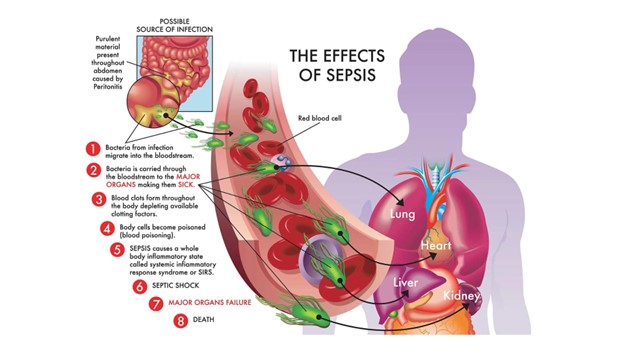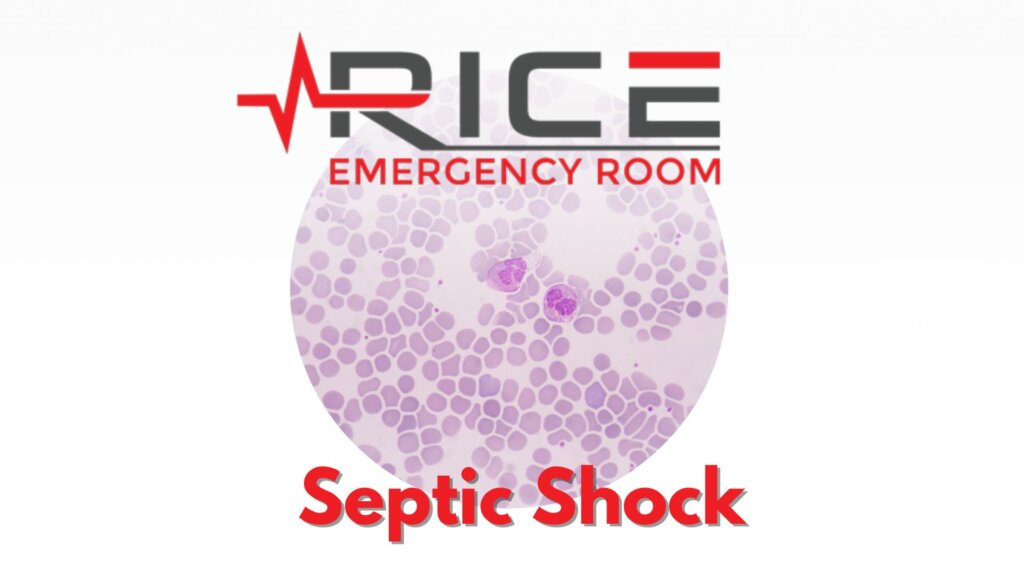Septic shock is a severe and potentially life-threatening medical condition that arises from sepsis, which is the body’s extreme response to an infection. This condition occurs when an infection spreads through the bloodstream, causing widespread inflammation that can lead to tissue damage, organ failure, and death if not promptly treated. For families in West University Place and surrounding communities, understanding the causes, symptoms, and treatments of septic shock is crucial, as it emphasizes the importance of immediate medical attention in such emergencies.
A Medical Emergency
Septic shock is a medical emergency that requires immediate intervention and professional urgent care. The rapid progression of the condition can lead to multiple organ failure and death within a short period.
If someone exhibits signs of septic shock, it is crucial to call 911 or visit the nearest emergency room without delay.
World-Class Emergency Care at Rice Emergency Room
At Rice Emergency Room, we are a stand alone ER, and we understand the urgency and severity of conditions like septic shock. Our state-of-the-art facility in Houston provides world-class emergency care, staffed by board-certified emergency room physicians who are experienced in managing critical conditions.
We are open 24/7, 365 days a year, ensuring that you and your loved ones receive the highest level of care whenever an emergency arises. Our on-site radiology, CAT Scan, and diagnostic lab facilities enable us to quickly diagnose and treat a wide range of medical emergencies, ensuring the best possible outcomes for our patients.
In times of crisis, trust Rice Emergency Room to deliver the expert care you need. Your health and safety are our top priorities, and we are committed to providing compassionate and comprehensive care to the West University Place community and beyond.
Causes of Septic Shock
Septic shock typically originates from an infection in the body. Common sources of these infections include:
- Bacterial Infections: These are the most frequent culprits, often originating from pneumonia, urinary tract infections, abdominal infections, or skin infections.
- Viral Infections: Influenza, COVID-19, and other viral infections can also lead to sepsis and septic shock.
- Fungal Infections: Although less common, fungal infections, particularly in immunocompromised individuals, can result in septic shock.
- Parasitic Infections: In rare cases, parasitic infections can lead to sepsis.
When these infections spread and overwhelm the body’s defenses, they can trigger an inflammatory response that disrupts blood flow, leading to dangerously low blood pressure and poor organ perfusion—key characteristics of septic shock.

Symptoms of Septic Shock
Recognizing the symptoms of septic shock is essential for timely intervention. Symptoms may include:
- Severe Hypotension: Critically low blood pressure that does not respond well to simple fluid replacement.
- Altered Mental Status: Confusion, disorientation, or loss of consciousness due to inadequate blood flow to the brain.
- Rapid Heart Rate: The heart works harder to compensate for low blood pressure.
- Fever or Hypothermia: High fever or abnormally low body temperature.
- Chills and Sweating: The body’s response to infection and inflammation.
- Difficulty Breathing: Due to inflammation and fluid in the lungs.
- Decreased Urine Output: Signifying kidney distress or failure.
- Cyanosis: Bluish or mottled skin due to poor oxygenation.
Treatments for Septic Shock
Septic shock requires immediate medical treatment in a hospital setting. Key aspects of treatment include:
- Intravenous Fluids: Rapid administration of fluids to increase blood pressure and improve circulation.
- Antibiotics: Broad-spectrum antibiotics are administered as soon as possible to fight the underlying infection. Once the specific pathogen is identified, treatment may be adjusted.
- Vasopressors: Medications like norepinephrine or dopamine are used to constrict blood vessels and raise blood pressure.
- Oxygen Therapy: Supplemental oxygen or mechanical ventilation may be necessary to ensure adequate oxygenation.
- Source Control: Identifying and eliminating the source of infection, which may involve surgery to drain abscesses or remove infected tissues.
- Supportive Care: This includes managing organ dysfunction, such as dialysis for kidney failure or medications to support heart function.
 24x7 Available
24x7 Available

